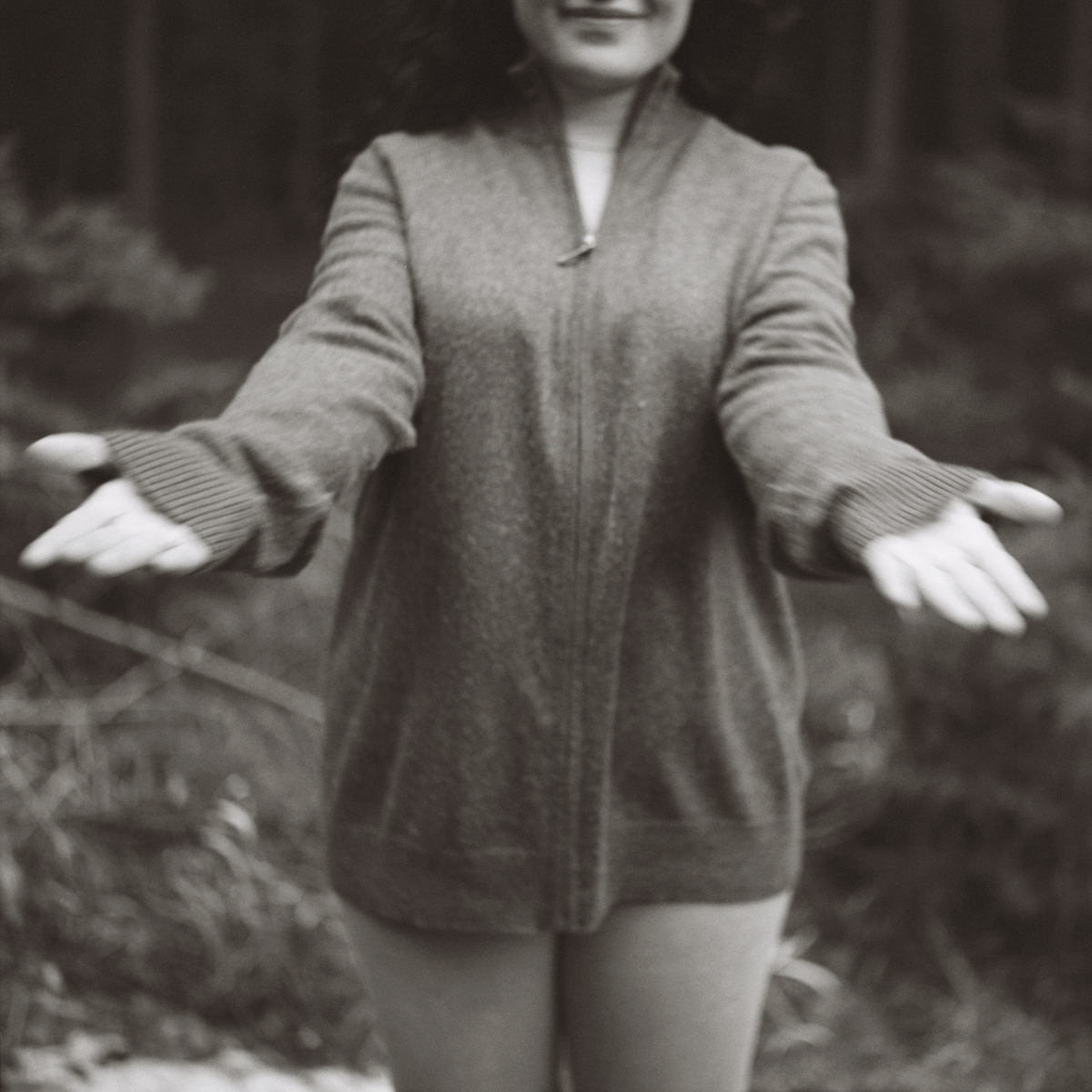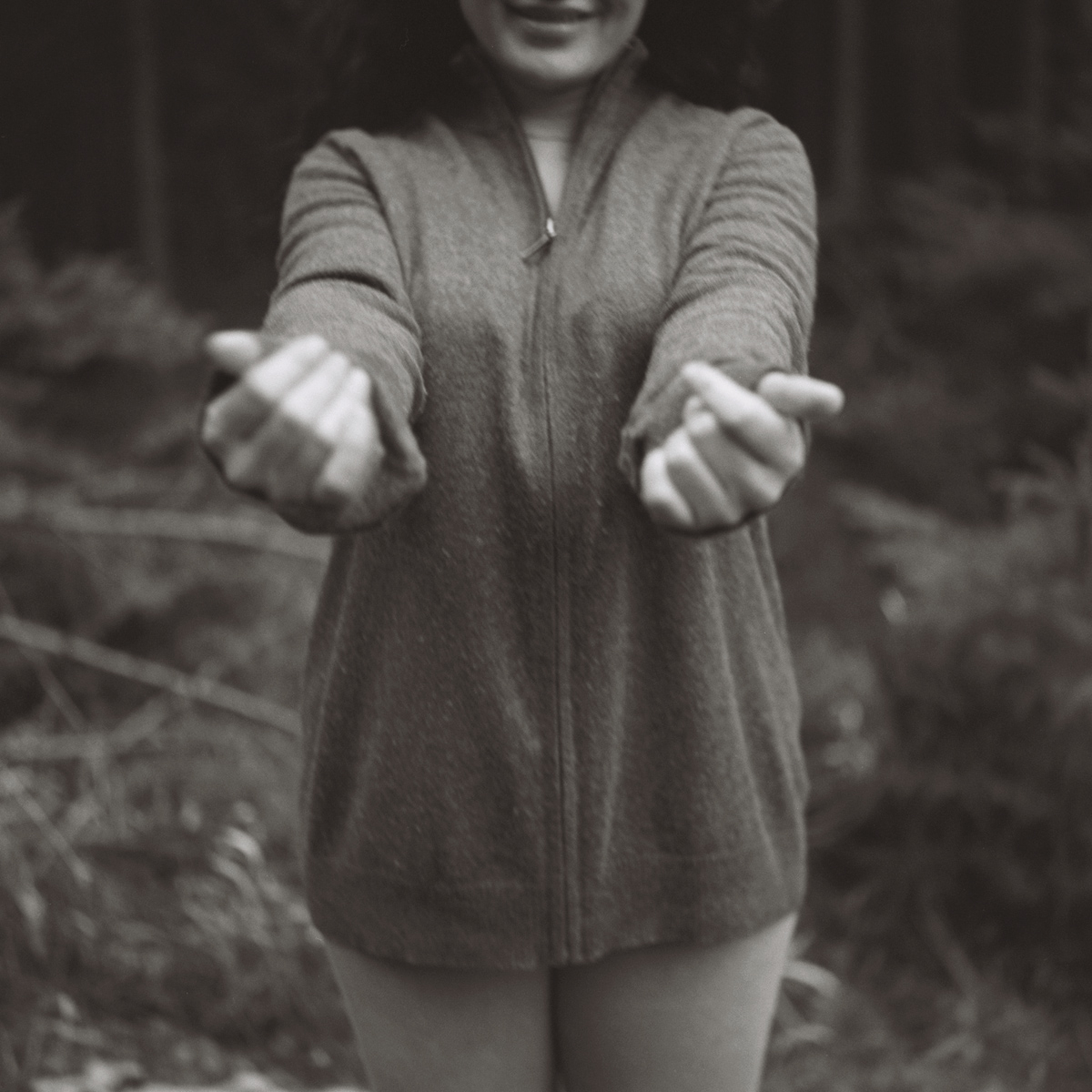AMINA*
left Iraq to live life in freedom.
February 2016: In between interviews, she and I took a break and went for a walk in the nearby woods. She spoke a little English, just a few words. But between those words and her miming and dancing, I heard her story for the first time. She had become a Christian in Iraq, where she faced serious consequences from family members for her conversion. I was an audience of one to an intimate theater piece of her story. Later I asked her to express her joy through movement so that I could try to photograph a tiny bit of her beautiful storytelling that I had experienced.
•
Life wasn’t easy in K-. There were a hundred and one problems, especially for women. Whatever happened, all the blame would go on the girl, not on the boy. Everything about our lives, they decided. Whether we liked it or not, they decided how we should live our lives.
And I’m not talking only of my own life in Iraq, but in Islamic countries in general, women do not have the right to choose for themselves when it comes to life, love, marriages, rights — nothing.
The veil was obligatory. Marriage is usually forced and arranged, despite the will of the woman. Love is considered to be haram (forbidden) — against the Islamic law. If you give your opinion or if you dare say what you think or say “I don’t want what you are imposing on me” then literally you risk being killed. But even if you’re not killed, then you live a hell of a life.
Only God helps in this case. I wanted to commit suicide many times and I tried, but I didn’t die. God helped me, although I went through a period when I hated God, because I hated my life in general. But he’s the one who helped me.
I hated life. It was very difficult and frustrating. I especially felt it was an injustice against women. I always said, why? Why am I born under these conditions? Why can’t I be like normal women? And it’s not only me I am talking about it. When the girl hits a certain age, they put a veil on her head, whether she likes it or not.
Many times my dad or my brother beat me because I was stubborn and didn’t want to put the veil on my head. And it had nothing to do with me liking or not liking the veil, it just was that the heat was oppressive. In K- in the summer, it was above 40 degrees Celsius. The veil was unbearable to wear; I felt suffocated. But my opinion wasn’t even asked for, I just had to wear it. Especially if Ramadan comes in the summer, then the heat and the fasting together become unbearable.
In my hometown K- where the community and society is almost non-existent, it’s extremely hard to live, especially as a woman. You guys don’t know it here because you don’t watch the K- national television, but raping girls was something very common and it was a threat that was present for all of us, every day.
Without my knowledge, my father arranged a groom and a wedding date for me. I thought about committing suicide like my sister did, but I realised it was wrong in the Christian faith.
The pastor gathered a community to help me and they told me there is an opportunity to go to the Czech Republic. The pastor’s wife took me to a person who heard my story and helped me apply, and thank God, the Czech government accepted me so I could get out of the hell I was living in. Now that it’s all over, I think it was a nightmare, and I thank God for having mercy on me and bringing me safely here.
I’m happy that I could break free from all of the difficulty that society placed over me, and not live in a way that they want me live, but become a Christian and live in a way that Christ wants me to live.”
*names changed to protect people’s privacy
Photos and story by Talitha Brauer
In December 2015 I received a call from documentary filmmaker Tamara Park, asking me to accompany her on a three week trek from north to south, starting in Finland and ending in Greece. We met and interviewed Syrian and Iraqi refugees who had fled their homes in hopes of beginning a new life in Europe.
Part 5 of From North to South, a photo essay account of their stories.



